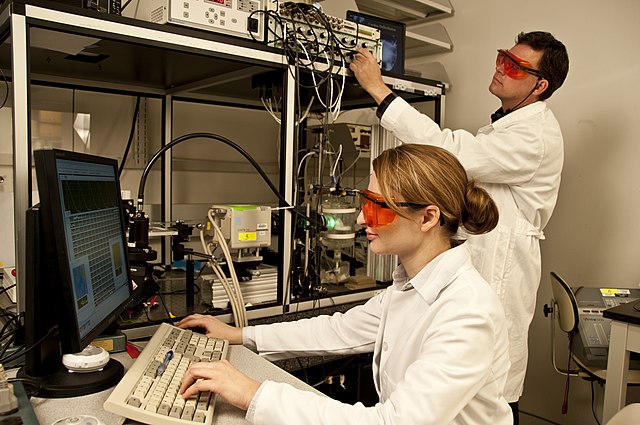FDA Issues New Guidance For Use Of AI In Health Care

WASHINGTON — The U.S. Food and Drug Administration recently partnered with Health Canada and the UK’s Medicines and Healthcare products Regulatory Agency to issue guiding principles to align efforts and standards for artificial intelligence and machine learning medical device development in health care.
“The FDA believes that artificial intelligence and machine learning technologies have the potential to transform health care by deriving new and important insights from the vast amount of data generated during the delivery of health care every day,” said Jim McKinney, public affairs specialist at the FDA, in an email to The Well News.
McKinney said the 10 guiding principles grew out of collaborative discussions with Health Canada and MHRA, and learning from several sectors that applied AI and ML technologies for years and have developed good practices that can be readily applied to the medical device industry.
Evidence from published information, expert and other public perspectives and review experience was used to develop the guiding principles that will be used by the agency to lay the foundation for the development of Good Machine Learning Practice, which will unify international efforts for medical device development.
Over the past decade the FDA has reviewed and authorized a growing number of devices legally marketed with machine learning and expects this trend to continue.
Special emphasis has been placed on promoting transparency of the devices’ functioning to users and to patients more broadly. Promoting transparency, according to McKinney, is a key aspect of a patient-centered approach.
In October, the agency held a virtual workshop to gather input from stakeholders and discuss how to achieve transparency for users of these devices, such as requiring the manufacturer to include labeling and public facing information of AI and ML-enabled medical devices.
“The FDA’s traditional paradigm of medical device regulation was not designed specifically for AI/ML technologies. Medical device software, including the subset of technologies that are enabled by AI/ML, have a lifecycle that lends itself to iterative development, and FDA is committed to developing innovative approaches to the regulation of these products,” said McKinney.
Innovating approaches to regulate these devices will also mean innovating training for the use of these devices among medical providers.
Prior to FDA releasing the guidance, a study was released by researchers from Florida Atlantic University showing a lack of AI and ML training offered in medical schools.
“It’s a big gap that needs to be filled. One of things we are looking at is hiring computer engineers who specialize in medical software in medical institutions to fill that gap,” said Joel Grunhut, one of the lead authors of the study, in a phone call with The Well News.
The study also found that few plans or implementations report on how to incorporate AI into the medical curriculum making it difficult for students to understand what a machine learning algorithm can and cannot do.
“If students are not made aware of the risks of what goes into the computational methods of AI, and if they are not made aware of how the algorithm may be built, or what to look for, then putting their full trust in [these devices]… that’s an open fallacy right there,” said Grunhut.
“Machine learning at this point in time, it’s a black box. We can’t tell you why certain decisions are made. So, students have to be made aware that there is always room for error. Just because something statistically is telling you something, doesn’t mean it is the right thing to do. So, there has to be talk about the ethics of AI in medical education,” said Grunhut.
Grunhut said such training could be incorporated into ethics lectures already happening in schools. He also is hopeful that if AI is incorporated with appropriate guidance it could reduce burdens on physicians and not create more.
“AI has the capability to bring back medicine as a whole. For the last half century the EMR has been creating this enormous workload on physicians, and physicians are getting more and more tasked with office work and things they don’t want to be doing … With advanced learning and artificial intelligence, we have this capability in the future for physicians to free up all this unnecessary work and spend more time with the patient,” said Grunhut.
“Can you imagine a patient coming in and there’s already an algorithm telling you what may be possible here and what is likely, and the physician can look at this and know what to ask to hone in on the diagnosis?” wondered Grunhut.
Alexa can be reached at [email protected]























